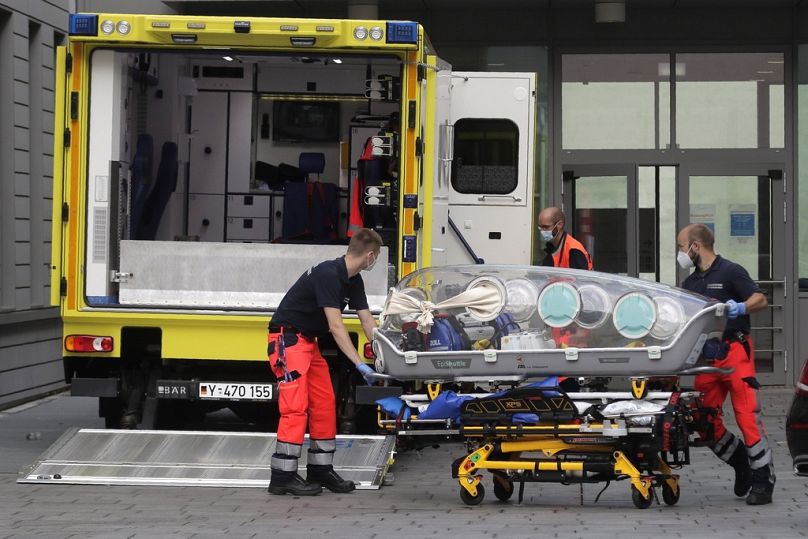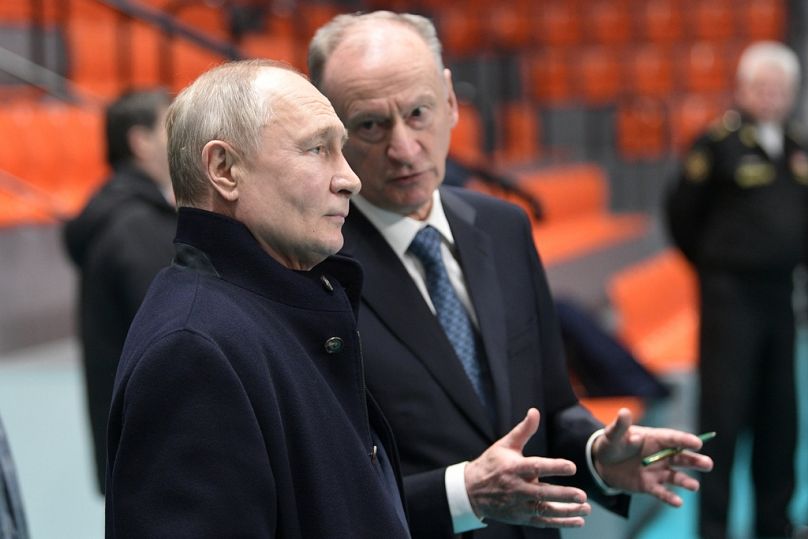The choice which now has to be made is not whether to appease the Kremlin or go into an open conflict with it. The choice now is either to stop Russia in Ukraine or be forced to fight a resurgent Moscow in defence of Eastern Europe as a whole, Aleksandar Đokić writes.
As much as the news of Alexei Navalny’s sudden death on Friday came as an intense shock, it's hard to escape the blood-curdling shadow of its inevitability.
It’s as if all democratically inclined Russians, and those who study the Russian society, knew all along that Navalny would be taken out of the picture by Vladimir Putin at some point, but at the same time hoped that it, by some miracle, not come to pass.
The death of Navalny is not and cannot be treated as an accident. Since no factual and fair investigation can be conducted in the totalitarian Russia of today, the causes of his death will remain a mystery.
There is no point in believing that even his remains will survive for long after they are laid to rest as they carry important evidence.
What is true, however, is that, in August 2020, before his imprisonment, Navalny was poisoned by a neurotoxin which left permanent detrimental consequences on his health; he was kept in solitary confinement for most of his prison term, and he complained about the lack of proper medical care.
Given the facts, his death was premeditated and orchestrated by the Russian machine of repression, even if he was not directly poisoned for the second time (which can still very well be the real cause of his death after all).
A pattern of propaganda reveals a sinister farce
The handling of Navalny’s sudden death by the Russian state propaganda follows the same pattern as in the case of his poisoning.
There are always two versions of events that transpired — one, it was an accident, and two, it was the work of the “Anglo-Saxon” security services.
The accidental death is the official version, the narrative which comes from the Russian penitentiary authorities. In the case of Navalny’s poisoning, the official version was that he had a medical condition and was not poisoned at all, which independent medical analysis in Germany later refuted.
The unofficial version stems from the Russian state media propagandists and state-operated blogs.
Their narratives coalesce and by the rule of thumb all claim that Russia had no motive to eliminate Navalny so it must have been the “perfidious Anglo-Saxons” who stand to benefit the most.
Once one analyzes Russian narratives for years, these patterns become obvious and impossible to miss. They can only instill doubt in those outside of Russia who think about Putin’s totalitarian prison camp only in passing.
Make no mistake: The siloviki are in charge in Moscow
The final elimination of Navalny, when he was already exiled to a maximum security prison in the Arctic Circle, sends a clear message that the Kremlin has stopped pretending that it cares one bit whether it's seen as a civilised country ruled by law or a thuggish concentration camp with neon-lit commercials.
The great pretence, which lasted in Russia for almost two decades, was founded upon the balance of two wings of its elite — the hawkish siloviki, agents of the security services and high-ranking military officers, and the capable technocrats, disinterested in empire-building as well as in democracy, and concerned only with the continuous functioning of the political and economic system.
By engaging in a large-scale war he could not quickly win — or win at all — Putin has transferred all the real power to the military-security wing.
The people like former FSB director Nikolai Patrushev now effectively govern Russia. They have taken over the political sphere, they have captured even the sphere of culture, where blacklists of undesirable actors, directors or performers have already been made and have left, for the time being, only the area of the economy in the hands of the technocrats.
The siloviki want the West to know that they mean to go all the way, hence the nuclear threats in space, combined by the elimination of Navalny, all taking place during the Munich Security Conference.
The thugs who now rule Russia are feeling quite confident; they are emboldened by the polling from the United States, which gives Donald Trump a slight advantage over President Joe Biden, and by the fact that much-needed military aid to Ukraine, currently awaiting the approval of the US House of Representatives, has been postponed on the urging of Trump and his allies in the Republican Party.
The siloviki believe that victory is within their grasp. Eliminating Navalny is a clear sign of their confidence.
Between a rock and a hard place, the choice has to be made anyway
In the death of Navalny, however, Russia has gained yet another symbol of democratic martyrdom, as much as it lacks democratic opposition leaders.
Better yet, it lacks an organised and unified liberal opposition. The million-ruble question is: who is next? Who will step up as the leader of the anti-totalitarian movement in Russia?
The answer right now might as well be no one — at least in the few years of totalitarianism that are still ahead for Russia. Only the tawing process of transition from totalitarianism and back to authoritarianism can provide enough liberties for the opposition to once again start to form.
That transition — as undemocratic as it will inevitably be — will most likely come from the top, and in order for that to be induced, Putin and the siloviki, who hold all the power in Russia, must hit a wall in Ukraine.
This has to be a wall made not only of Ukrainian bravery and sacrifice, but of Western resolve to contain Moscow's aggression before it engulfs more of Europe, and, eventually, most of the continent.
The choice which now has to be made, first and foremost by the White House and Brussels, is not whether to appease the Kremlin or go into an open conflict with it.
The choice is either to stop Russia in Ukraine or be forced to fight a resurgent Moscow in defence of Eastern Europe as a whole.
Aleksandar Đokić is a Serbian political scientist and analyst with bylines in Novaya Gazeta. Formerly, he was a lecturer at RUDN University in Moscow.
At Euronews, we believe all views matter. Contact us at view@euronews.com to send pitches or submissions and be part of the conversation.













